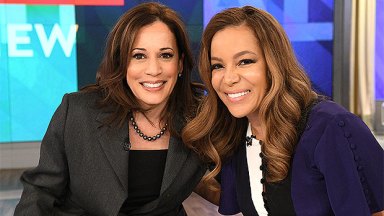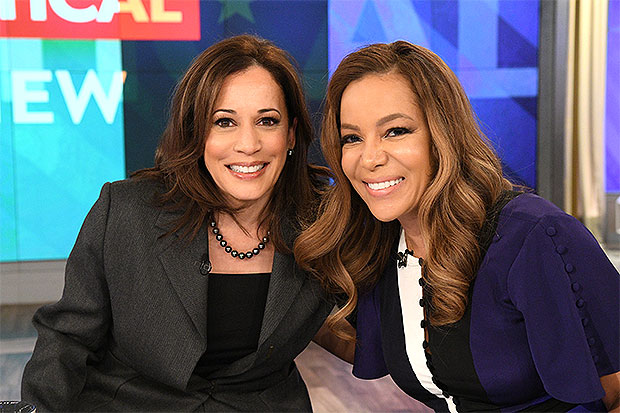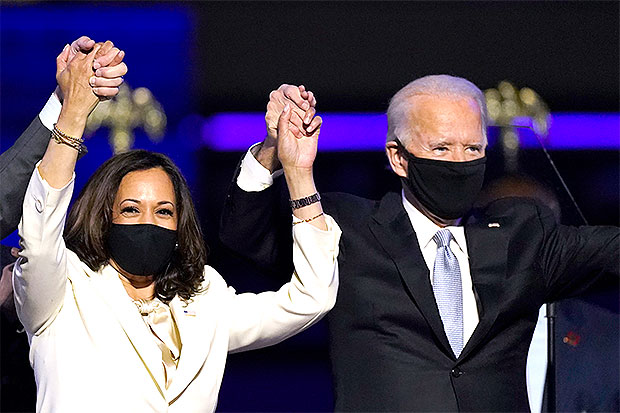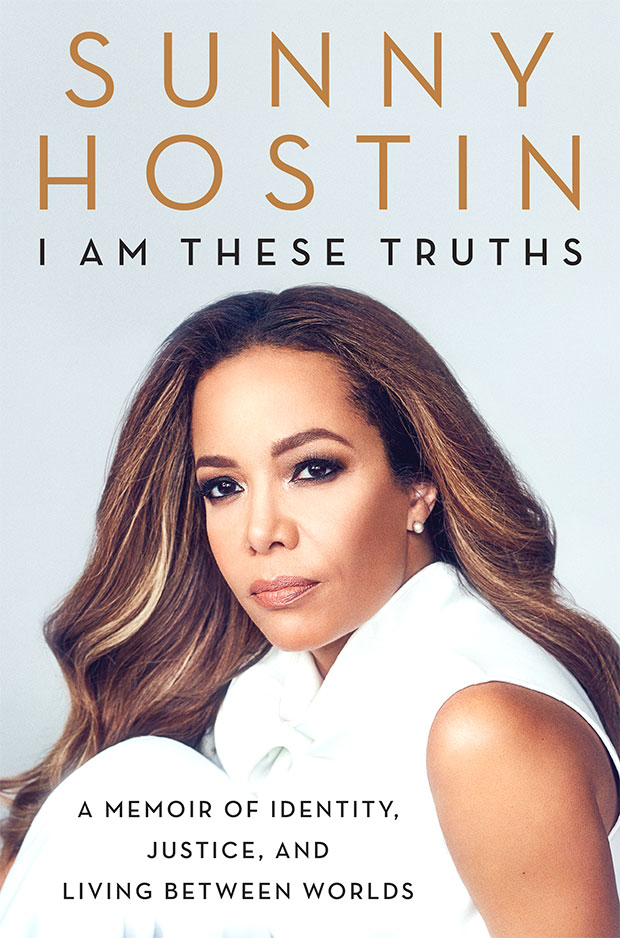
If you purchase an independently reviewed product or service through a link on our website, we may receive an affiliate commission.
Black women have “earned” the right to be represented at the highest government level, according to Sunny Hostin. The View co-host discussed the significance of Sen. Kamala Harris becoming the next U.S. Vice President while chatting with HollywoodLife about her new memoir, I Am These Truths: A Memoir of Identity, Justice, and Living Between Worlds.

“I co-wrote a Washington Post op-ed this summer with an incredible group of Black women activists and celebrities about the need for a Black woman Vice President and a Black agenda,” Sunny, 52, said. “I got significant hate mail in response from people who asked, ‘How dare you demand that [Joe Biden] pick a Black woman?’
“My response is that Black women have always been the bedrock of the Democratic party. We’re its most loyal voting bloc. Other voting blocs or lobbies make demands of candidates all the time, based on their agendas. Why can’t Black women ask for representation at the very highest levels of government? It’s our time. We deserve that representation. We’ve earned it.”
When she becomes the next Vice President in January 2021, Sen. Harris, 56, will have achieved a number of firsts. She will be the first female, the first Black person and the first woman of South Asian heritage to hold that office. Sunny and the California senator have a few things in common. In addition to being no nonsense former prosecutors, they are both of mixed racial heritage. Vice President-elect Harris is the daughter of immigrants – an Afro-Jamaican father and an Indian mother. Meanwhile Sunny’s dad is African-American and her mom is Puerto Rican.

Both women have faced the sting of people questioning their ethnicity and racial authenticity. Not only have they been other-ed, they’ve been deemed not “enough.” In August 2020, for example, after now President-elect Biden announced that Sen. Harris would be his running mate, Conservative talk show radio host Mark Levin seemed to try to divorce her from her blackness, saying that she is “Indian and Jamaican,” not “African-American,” according to an NPR report. (He seemed to either ignore or be ignorant of the fact that Black people in the Caribbean are descendants of African slaves too.)
Straddling the two identities of African-American and Puerto Rican, Sunny has faced similar criticism throughout her life. It’s a theme that she addresses in her memoir. However, she acknowledged that today Afro-Latinas may have a slightly different experience.

“There is definitely more recognition now than when I was growing up,” said Sunny who, like rapper Cardi B and journalist Soledad O’Brien, is a high-profile Black Latina. “When I was younger, the term Afro-Latina didn’t even exist! Although we still have a ways to go, I still get questioned about my identity almost daily on social media. ‘Is Sunny Black or Puerto Rican today?’ was a recent comment.
“[I] see comments asking if I am Puerto Rican or if I am Black. I’ve realized after writing my book that what it comes down to is that people want to know what you are, so they can determine who you are and how they will treat you. That has to change, because we get to decide our value, our worth, our identity and we certainly get to demand how we will be treated.”
The mother-of-two added, “You shouldn’t have to change your identity, your authenticity, to fit a general identity. It’s a disservice, not just to yourself, but to the industry you enter, and to our country.”
I Am These Truths: A Memoir of Identity, Justice, and Living Between Worlds is on sale now in both English and Spanish.
![United States Senator Kamala Harris (Democrat of California) speaks during a television interview at the United States Capitol in Washington D.C., U.S., on Wednesday, June 24, 2020. Credit: Stefani Reynolds / CNP. 24 Jun 2020 Pictured: United States Senator Kamala Harris (Democrat of California) speaks during a television interview at the United States Capitol in Washington D.C., U.S., on Wednesday, June 24, 2020. Credit: Stefani Reynolds / CNP. Photo credit: Stefani Reynolds - CNP / MEGA TheMegaAgency.com +1 888 505 6342 (Mega Agency TagID: MEGA683531_004.jpg) [Photo via Mega Agency]](https://hollywoodlife.com/wp-content/uploads/2019/01/kamala-harris-pics-5.jpg?fit=440%2C293)

